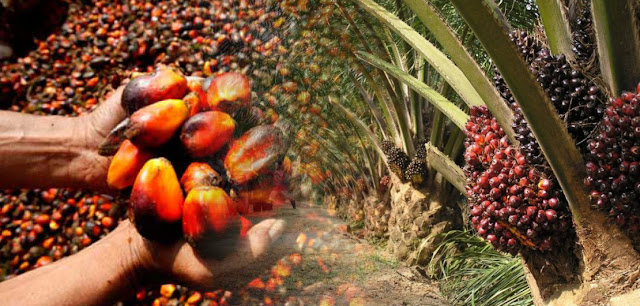Oil palm (Elaeis guineensis Jacg) is one of the plantation commodities that needs to be increased production, productivity and quality. This plant comes from West Africa, is a major vegetable oil producing crop which has a higher productivity than other vegetable oil producing crops. Oil palm was first introduced to Indonesia by the Dutch government in 1848. At that time there were 4 oil palm seedlings planted in the Bogor Botanical Garden (Botanical Garden), Bogor, two palm from Bourbon (Mauritius) and two palm others from the Hortus Botanicus, Amsterdam ( Netherlands).
Initially the oil palm plant was cultivated as an ornamental plant, while the cultivation of crops for commercial purposes only started in 1911 and until the end of '70s it was still the only plantation crop that was only cultivated as a large plantation business. Meanwhile, other plantation crops, which cover about 126 types of plants, are mostly cultivated as smallholder plantations. At that time the big national development agenda was poverty alleviation and job opportunities and the need for cooking oil as raw material was still relying on coconut.
The pioneer of oil palm plantation business in Indonesia was Adrien Hallet (a Belgian), then his cultivation was followed by K. Schadt, which marked the birth of oil palm plantations in Indonesia which began to develop. The first oil palm plantations were located on the East Coast of Sumatra (Deli) and Aceh. Plantation area reaches 5,123 ha.
During the Dutch occupation period, oil palm plantations developed rapidly to the point of displacing the export dominance of African countries at that time. Entering the Japanese occupation period, the development of oil palm experienced a decline. Plantation land has decreased by 16% of the total land area, so that palm oil production in Indonesia only reached 56,000 tonnes in 1948/1949, when in 1940 Indonesia exported 250,000 tonnes of palm oil.
In 1957, after the Dutch and Japanese left Indonesia, the government took over the plantations (for political and security reasons). To secure the production process, the government placed military officers at every level of plantation management. The government also formed BUMIL (Military Workers) which is a collaboration between plantation workers and the military. Changes in management in plantations and unfavorable socio-political conditions as well as domestic security have caused palm oil production to decline and Indonesia's position as the world's largest palm oil supplier has been displaced by Malaysia.

